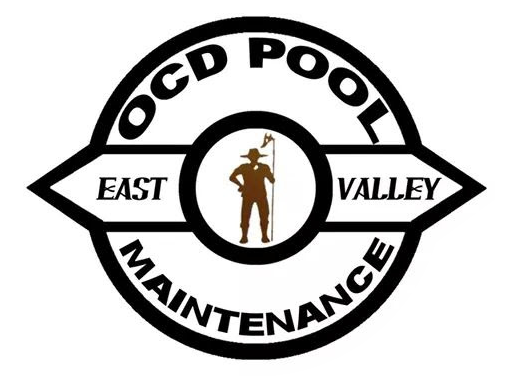Ever thought if you’re doing enough for your pool? Routine upkeep seems simple, but finding the right timing is tricky. A private pool brings joy and memories to your home. Yet, regular care is key to avoid accidents and damage.
Experts say to clean your pool weekly to keep it safe and clean. Skipping maintenance can lead to harmful bacteria. These can cause sickness and even serious health problems.
Algae and moss can also make your pool slippery, risking accidents. To avoid this, clean your pool regularly. Keep the pH and chlorine levels right. Also, vacuum and skim for debris, and use algae preventatives weekly. Services like Sterling Pool Service can help keep your pool safe and lasting.
Swimming Pool Maintenance Frequency and Best Practices
Keeping a swimming pool clean requires daily attention and a regular cleaning schedule. This ensures the water stays clear and safe. Following the best maintenance practices helps avoid problems like cloudy water and bad smells.
Every day, it’s important to run the pool pump. This keeps the water moving and fresh, especially when it’s hot. Running the pump for 24 hours a day or 8 hours at high temperatures is best.
Weekly maintenance is key to a well-kept pool. This includes:
- Vacuuming the pool
- Testing pH levels, which should range between 7.2 and 7.8
- Checking chlorine levels, which should be maintained between 1 and 3 ppm
- Monitoring alkalinity, which should be between 80 and 120 parts per million (ppm)
- Skimming, brushing, and cleaning the pool area
- Applying algae preventatives
Bi-monthly tasks are also important. They include cleaning the pool filters and checking the chemical balance. When the filter pressure goes up, it’s time to backwash it. This keeps the filter working well.
Having a regular cleaning schedule is crucial for water quality. Brushing and skimming daily helps the filters last longer. Also, weekly checks on pH, calcium hardness, sanitizer, and metals are important. They prevent problems with the water and pool surfaces.
The frequency of pool service depends on how often you use it, the weather, and the type of pool. But sticking to a routine makes pool care easier. Shocking the pool after heavy use or rain kills algae and bacteria. Make sure the pump is on during this time and check the water chemistry.
Also, keep the pool area clean to avoid debris and safety issues. Upgrading or renovating the pool area yearly can make it look and work better. This improves your swimming experience.
By following these maintenance tips and keeping to a regular cleaning schedule, your pool will be a refreshing spot all year round.
How often should I maintain my swimming pool?
Keeping your pool in top shape requires regular cleaning and a solid maintenance plan. Daily tasks include removing debris, checking systems, and looking for any issues. This daily routine helps avoid bigger, more expensive problems later.
For a thorough clean, aim for a deep clean once a week. This should include vacuuming, skimming, and brushing to keep water quality high. Also, test the water weekly to ensure the right chemical balance. The ideal pH is 7.4–7.6, alkalinity 100–150 ppm, and chlorine 1–3 ppm.
Pumps are key for water circulation and should run 24/7 for best results. If this isn’t possible, aim for 10 to 12 hours a day. In summer, run the pump 8–10 hours daily. In cooler months, 4–6 hours is enough. Variable-speed pumps might need up to 18 hours in summer.
Regular filter maintenance is also crucial. Sand filters need backwashing monthly and sand replacement every three to five years. Cartridge and DE filters have different needs. Cleaning your filter monthly to every four to six months is recommended. A structured maintenance plan helps catch issues early.
Consider upgrading to pool automation systems, variable-speed pumps, and LED lighting. These can make maintenance easier and more efficient.
Pool safety is also vital. Always have a grown-up watching the pool, especially with kids around. Learning CPR is important in case of emergencies.
Conclusion
Keeping your pool clean is key to its health. A good pool care schedule includes daily, weekly, and monthly tasks. These tasks help keep the pool safe and fun for everyone.
Tasks like skimming, vacuuming, and checking water chemistry are important. They prevent problems like algae and equipment damage. This saves you money and keeps your pool in top shape.
Getting help from experts like OCD Pool Maintenance can make pool care easier. They handle tough jobs like finding leaks and fixing heaters and even offer a weekly pool maintenance service. This lets you relax and know your pool is well taken care of.
A reliable pool care plan makes your pool last longer. It also makes swimming healthier and more enjoyable. This is a big win for pool owners.
As the swimming season ends, pool care is even more important. You need to test the water, clean up, and check the equipment. Plus, using energy-saving tips helps keep the pool great all year.
In the end, a well-kept pool is a place of endless fun and relaxation. By following these tips and getting help when needed, you can ensure a wonderful swimming experience for everyone.




